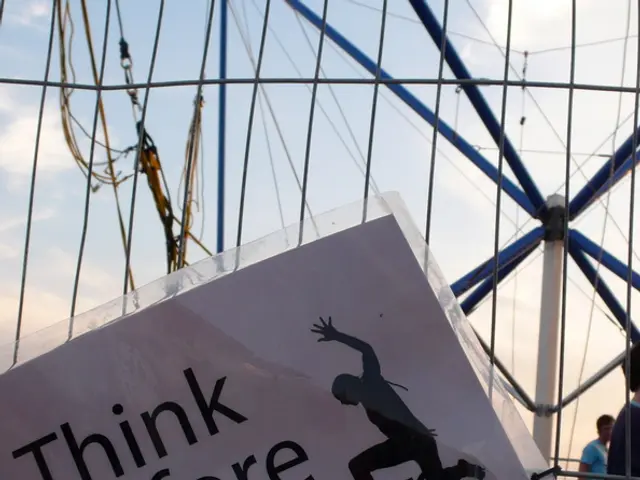Japan placed last among G7 nations in global press freedom rankings for the year 2025.
Japan Slips in Global Press Freedom Rankings, Remains Troubled by Systemic Issues
It's a disheartening reality that Japan finds itself at the bottom of the G7 nations in the 2025 global press freedom rankings. The country's ranking of 66th, a four-place improvement from the previous year, reveals persistent challenges within media practices and political pressure that have become all too common.
It's not just Japan's story, though. The United States, with Donald Trump's reelection as president, fell two spots to a dismal 57th, a stark contrast to its earlier standing among G7 nations.
Medium-based information sources like newspapers and online outlets in Japan are generally respected, but they often fall short in thoroughly fulfilling their role as watchdogs due to traditional and business interests, political pressure, and gender inequalities, as stated by Reporters Without Borders (RSF). The organization also criticized Japan's "press club" system, suggesting it enables self-censorship and discriminates against foreign journalists.
Unfortunately, the U.S. is experiencing a significant and prolonged decline in press freedom, a situation that Trump's reelection may worsen, according to RSF.
Norway retains the top spot globally, with Ukraine at 62nd, Russia at 171st, China at 178th, North Korea 179th, and Eritrea brings up the rear.
Japan's seemingly incremental progress of moving up four spots in the global ranking seems misleading when considering unresolved systemic issues like the exclusionary press club system, institutionalized caution among journalists, and self-censorship that keep the country's press freedom score subdued. Meanwhile, the U.S.’s decline is largely attributed to political hostility towards media under Trump’s leadership.
Insights- Japan's ranking of 66th is indicative of systemic challenges in media practices and political pressures.- The press club system in Japan limits access to officials and press conferences to mainstream outlets, side-lining foreign journalists and freelancers.- Government and corporate entities in Japan regularly influence media management, discouraging critical reporting on sensitive topics like political corruption, sexual harassment, and nuclear safety.- Mainstream media often shy away from contentious issues due to fear of retribution or the loss of access, a practice that is exacerbated by close ties to political and business elites.- Gender disparities in Japanese journalism restrict diverse reporting perspectives, particularly on social issues.- The U.S’s decline in press freedom is largely attributed to political hostility under Trump's leadership.- Norway remains the global leader in press freedom, while authoritarian states like China and North Korea are near the bottom.
- AIs and Japan's business world have not been immune to the issues plaguing the country's media, with political pressure and systemic inequalities like gender disparities allegedly influencing coverage.
- In the world of general-news, the persisting challenges in Japan's media practices and political environment have likely trailed discussions on emerging AI applications and their potential impact on journalism.
- As Japan's press freedom ranking remains a concern, the question of AI censorship in media could arise as a potential solution or continued threat to press freedom by 2025.
- Critics have suggested that the press club system in Japan, often taken as traditional practice, may unintentionally contribute to self-censorship among journalists, further impacting the business world's interactions with the media.
- With Japan's persistent press freedom issues and the growing influence of AI, the debate on how technology can be used to promote press freedom or potentially exacerbate existing inequalities is an important one to consider in the political and business spheres.








